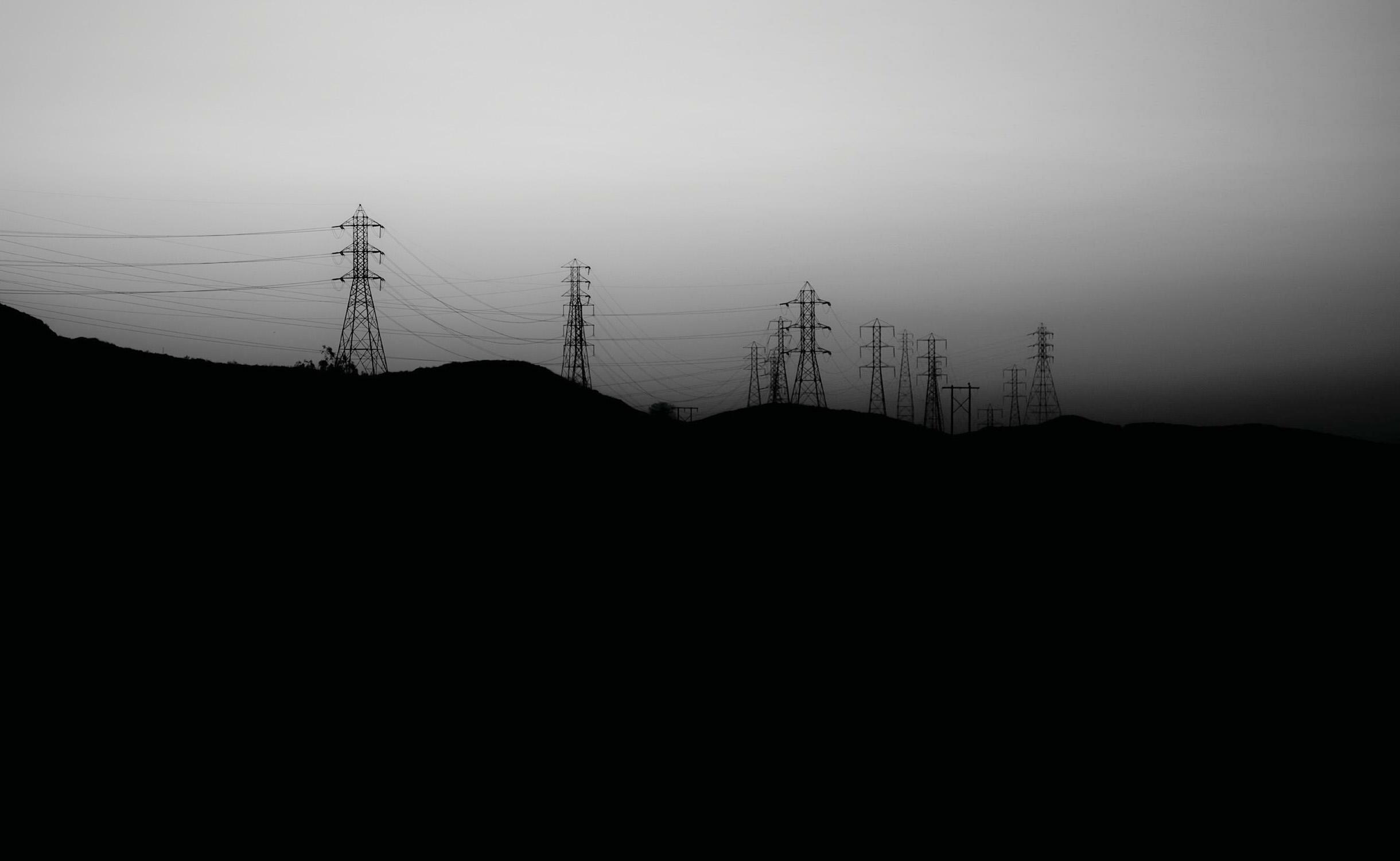
MOST PEOPLE IGNORE THE electrical grid, until it stops working. When that happens, the disruption can be total, but most often is a matter of inconvenience— the lights go out, the internet goes down, there is no place to recharge a cell phone.
But what if power did not return for days, weeks or months? And what if such a lengthy blackout engulfed not just a neighborhood or a county but a wide swath of the nation? The consequences, experts say, would be devastating. Many people would have no water to drink, no gas for their cars, no heat for their homes. They wouldn't be able to cash a paycheck, use a credit card or call an ambulance. Food, vital medicines and other essentials would grow scarce because trucks would be unable to refuel. Virtually every aspect of life would come to a halt. Casualties could run into the millions.
The possibility of widespread and prolonged outages may seem to many people like the stuff of science fiction, but security experts now believe that the chance of such a disaster is higher than it’s ever been—and rising.
In the first eight months of 2022, the U.S. electrical grid was physically attacked 107 times, according to the U.S. General Accounting Office—the most in more than a decade. On December 3, shootings at two substations in Moore County, North Carolina, plunged more than 40,000 people into darkness. Reports have since emerged of other recent acts of sabotage, including a series of attacks against four sites in Pierce County, Washington, leaving around 14,000 people without power on Christmas Day.
This story is from the {{IssueName}} edition of {{MagazineName}}.
Start your 7-day Magzter GOLD free trial to access thousands of curated premium stories, and 9,000+ magazines and newspapers.
Already a subscriber ? Sign In
This story is from the {{IssueName}} edition of {{MagazineName}}.
Start your 7-day Magzter GOLD free trial to access thousands of curated premium stories, and 9,000+ magazines and newspapers.
Already a subscriber? Sign In

Mystery of Ginger Cat Is out of the Bag
The genetics behind the vibrant orange color in feline coats is finally confirmed after 112 years

Paris Hilton & Nicole Richie
PARIS HILTON AND NICOLE RICHIE ARE READY TO BRING A LITTLE “SANASA” to the world with Peacock's Paris & Nicole: The Encore, their first project together since their reality show The Simple Life ended in 2007. What's “sanasa”? It's a song and phrase the longtime friends created as kids and popularized on The Simple Life. The show, a cultural phenomenon in the early days of reality TV, followed them over a series of blue-collar jobs. Now they're bringing it back as an opera. “I know this is just going to make people laugh, have fun, be nostalgic and just celebrate our friendship,” Hilton said. While Richie acknowledged “you can't do Simple Life again,” she said now “felt like the right time.” The famous pair also revisit some old jobs in Arkansas, like fast-food chain Sonic, where they now have drinks named for them. “I think that there is a part of our friend- ship that the show ended up showing that people connect to,” Richie said. As for this new special, Hilton is glad to do something positive for their fans. “It's been such a crazy past couple years, and I just feel like the world needs more joy.”

What Next for Your Drugstore?
Walgreens and Amazon are placing opposing bets on the future of retail pharmacy

AMERICA'S GREATEST WORKPLACES for Diversity
AS COMPANIES IN THE UNITED STATES CONTINUE TO navigate the evolving dynamics of the workplace, diversity remains a cornerstone of organizational success and social responsibility.

FIGHTING SPIRITS
ANDREA MCCARTHY TOLD FRIENDS and family when she gave up alcohol on January 1, 2024, that she would toast 12 months off the sauce with a drink to ring in 2025. As that anniversary approached, the Los Angeles-born content creator told Newsweek she had had a change of heart.

Lessons Over Lunch
Ninety-year-old volunteer Hugh showed me how the winter years can be full of purpose

Is California's Green Dream Hot Air?
The state aims to rely on zero-carbon energy sources in two decades' time but has hurdles to overcome along the way

Power Struggle
As the dust settles following the toppling of Bashar al-Assad, new front lines could be drawn in Syria's old civil war

Downsizing Goes Bust for Boomers
Rising property costs are not just affecting young Americans—older people are ‘aging in place’ due to a dearth of affordable accessible housing

Ray Romano
\"I read about three scripts, and at the end of each there was a little twist, a little turn, [and] it was funny.\"